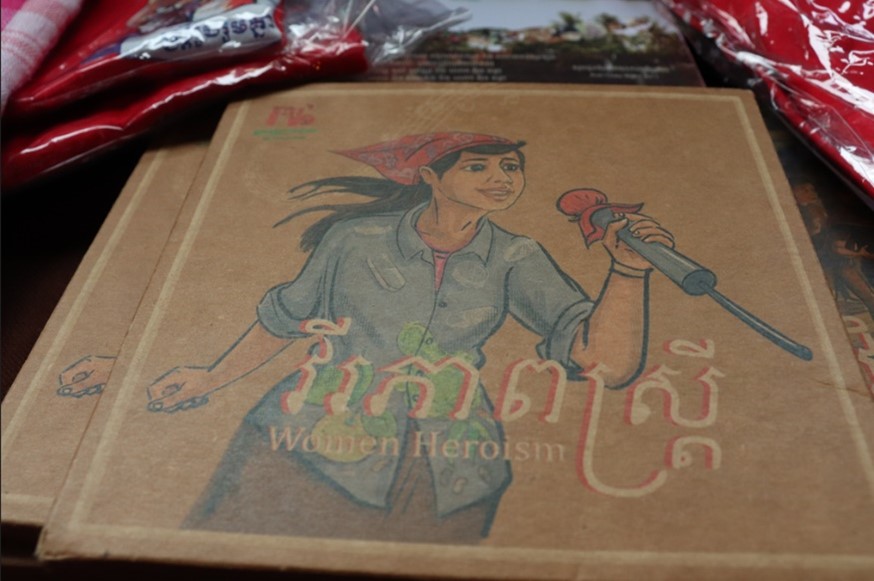FALSE ALARMS, FALSE SOLUTIONS
In January 2024, the French administration declared that, ahead of the upcoming Olympics in July, they would set up a platform to report on the "risks of prostitution" in housing so that landlords can be warned, and sex workers can be evicted. In May, AirBnB, the online home rental platform, signed a convention with the French government to develop a guide to assist travellers during the Olympics in identifying signs of exploitation and in working with police and judiciary. These measures stem from the false moral panic that the Olympics will lead to an increase in trafficking for sexual exploitation.
This blog uses evidence from past mega sporting events to ask the question: is there a way to rewrite the script around these games where the fight against human trafficking for sex and other labour does not harm sex workers?
MISPLACED CONCERN
It is important to ask what perpetuates policies of increased policing, moral panic, and the notion that host cities will witness a rise in sex work and trafficking. Some research attributes this to the media strategy of “sex sells” as news. For example, one research shows that for the 2004 Athens Olympic Games, media outlets speculated an increase of 20,000 forced prostitutes being trafficked into the area. Before the 2006 World Cup in Germany, this number had gone up to 40,000 women.
Kin Khao Duai Gan Kha/Let’s Share a Meal
Kin khao duai gan kha (let’s eat together) is one of the first phrases I learnt in Thailand. It often marked a moment when strangers became friends. Getting to know and love the food of this country and connecting it with memories of food from my homeland made me feel at home here.
Food brings people together. Sharing a meal with friends and family is one of the simplest pleasures of life. People across the world, rich and poor alike, take pleasure in cooking and eating together. Food memories are special for all of us. Years after we have eaten a meal, we remember its taste and smell, the place, and people with whom we had shared it and how we had felt at that time.

Questions & Concerns
But we can’t talk about food without talking about its absence. About hunger and malnutrition. About the inequality and unfairness in our food systems. About the degradation of environment that we have caused to produce more food. There is enough food to feed everyone, but hunger and malnutrition are a reality for at least 10% of the world’s population. The 2023 Global Hunger Index (GHI) projects that the situation may worsen in the coming years. The report notes that unless timely action is taken, today’s youth are poised to inherit food systems that are unsustainable, inequitable, and non-inclusive.
Meeting domestic workers over a meal of miang pla tu

Visit Summary
FOOD LITERACY WORKSHOP
MAP FOUNDATION AND GAATW | 17 September 2023
On a rainy mid-September morning in Chiang Mai, 20 women migrants from Shan state in Myanmar were gathering outside the MAP Foundation office. Their bright pink, red and maroon clothes were in stark contrast against the grey, cloudy sky. Some had come on their motorbikes, others had taken one or two public buses to reach by 8:30. The women were domestic workers and had come on their day off to attend a Food Literacy workshop organised by MAP and GAATW
By 9 AM, everyone had boarded the songthaews that took us to Mae Rim, a short 30-minute trip from Chiang Mai. It was not a quiet ride. The women were making selfies and videos, chatting about food, work, employers, and partners.
MAP is a Thai NGO that provides assistance to migrant workers in the region and advocates for their human and labour rights. The organising of migrant domestic workers is led by Pim, a migrant worker from Myanmar. After working as a domestic worker for nearly 17 years, and after attending many trainings by MAP, Pim is now part of the organisation’s staff. Her presence helps to create a link between the GAATW team and the workers.
The Role of Translation in Social Movement Building
Srishty Anand
In July, the GAATW Secretariat organised a five-day Women Workers Forum (WWF) meeting with participants from Indonesia, Cambodia, Thailand, and India. The women work in different occupations and geographic locations and speak different languages (Hindi, Khmer, Thai, English, Bahasa). To create a space of co-learning and sharing, we onboarded translators and rented translation devices. This blog focusses on the role of translation in activism and social movement building at the level of a transnational collective that has come together to create a vision of social transformation.
 |
Songs recorded by Messenger Band, Cambodia |
The Women Workers Forum, as the name suggests, is a space focused on the political education and mobilisation of women workers located at the intersection of gender, labour, and migration in different countries. It is intended to shift the power and decision-making from CSO actors to women workers, with CSOs involved only as facilitators or catalysts. This is driven by the conviction that women workers are best placed to set their own learning agenda and articulate their vision of change. Continuing with one of GAATW’s focus area of political education of women low-wage workers, this initiative hopes to foster the self-organisation and social awareness of workers and empower them to speak for themselves and engage with the state and other stakeholders to make their demands heard.
Panorama de la trata de personas en América Latina a la luz de la pandemia: Dinámicas de la trata de personas en Colombia y principales obstáculos para la asistencia a las víctimas
Panorama de la trata de personas en América Latina a la luz de la pandemia: Dinámicas de la trata de personas en Colombia y principales obstáculos para la asistencia a las víctimas
 A pesar de la existencia de marcos normativos, leyes y decretos que reafirman la responsabilidad de los Estados en la lucha contra la trata de personas, en América Latina y Caribe siguen persistiendo condiciones que impiden la asunción de esta obligación en su totalidad y mantienen a las personas en una condición de permanente vulnerabilidad: desigualdad, desempleo, pobreza, violencias, escaso acceso a la educación superior y la formación profesional. A todo esto, se han sumado las consecuencias de la pandemia de COVID-19 con impactos desproporcionados en la economía y la sociedad.
A pesar de la existencia de marcos normativos, leyes y decretos que reafirman la responsabilidad de los Estados en la lucha contra la trata de personas, en América Latina y Caribe siguen persistiendo condiciones que impiden la asunción de esta obligación en su totalidad y mantienen a las personas en una condición de permanente vulnerabilidad: desigualdad, desempleo, pobreza, violencias, escaso acceso a la educación superior y la formación profesional. A todo esto, se han sumado las consecuencias de la pandemia de COVID-19 con impactos desproporcionados en la economía y la sociedad.
Comunicado: La problemática de la Trata de personas a dos años de la pandemia
Algunas reflexiones desde América Latina y el Caribe
10 de diciembre de 2021
A pesar de la existencia de marcos normativos, leyes y decretos que reafirman la responsabilidad de los Estados en la lucha contra la Trata de personas, en América Latina y el Caribe siguen persistiendo condiciones que impiden la asunción de esta obligación en su totalidad y mantienen a las personas en una condición de permanente vulnerabilidad: desigualdad, desempleo, pobreza, violencias, escaso acceso a la educación superior y la formación profesional. A ellas se han sumado las consecuencias de la pandemia de COVID-19 en la economía y la sociedad y los impactos desproporcionados de la emergencia climática en la población de la región.
Durante este período, numerosas organizaciones sociales y de la sociedad civil en América Latina y el Caribe hemos expresado nuestra preocupación por el debilitamiento de las democracias y el estado de derecho, al tiempo que hemos denunciado el avance de las fuerzas de seguridad, la militarización de las fronteras y la criminalización de las personas migrantes y defensoras de derechos humanos en nombre de la pandemia de COVID-19. Asimismo, quienes conformamos la Red Latinoamericana y del Caribe contra la Trata de Personas (GAATW-REDLAC) hemos llamado la atención sobre la creciente invisibilidad de la problemática de la Trata de personas en la región, puesta en evidencia por la falta de inversión y capacitación especializada y, en muchos casos, por la total desatención[1] de este fenómeno ante las medidas de confinamiento y emergencia sanitaria implementadas por cada país.
The challenge to "build back better" for migrant workers' rights and entitlements
Namrata Daniel
South Asian countries have emerged as one of the significant sources of migrant workers for the countries of West Asia. For many South Asian women, one critical reason to migrate is the everyday violence that they experience in the private and public spheres. Thus, gender inequality in South Asia has to be examined closely, particularly at the intersections of caste, class, religion, and ethnicity. These identities play a significant bearing on the patterns of migration and the risks women migrant workers are willing to take to earn livelihoods. As a result, they are confronted with multiple forms of discrimination, exploitation, and violence in their migration journeys.
With their paid and unpaid labour, women make significant contributions to the economies of both origin and destination countries. Despite this fact, several governments in the region have traditionally imposed various restrictions on women’s mobility. These restrictions force women to migrate under dangerous conditions and exacerbate the risks of exploitation and abuse.
Mass Resistance in Myanmar (and elsewhere): A look back at February
Bandana Pattanaik
February began with the disturbing news of Myanmar’s armed forces seizing power and declaring state of emergency for a year. The month ended on a more distressing note. At least 23 people were killed and many more injured when security forces opened fire on peaceful protesters on Sunday, 28 February.
One month into the coup, we have seen much that was predictable: a UN Security Council Statement, imposition of economic sanctions by the US, strong denial by China that it was backing the coup and turmoil with ASEAN regarding an appropriate action step. While the military’s action, the rhetoric of western countries and ASEAN’s inaction are from their old playbooks, what is new is the massive protest within Myanmar.
Millions of workers from public and private sectors – teachers, doctors, journalists and garment factory workers -- have come forward to strike. People have expressed dissent in innovative ways by banging pots and pans at 8 PM every evening to ‘drive away the evil spirit of the coup’ and the artist community of Yangon has joined hands by projecting satirical images on social media and city walls. Young people are singing the protest songs of the famous 8888 era.
